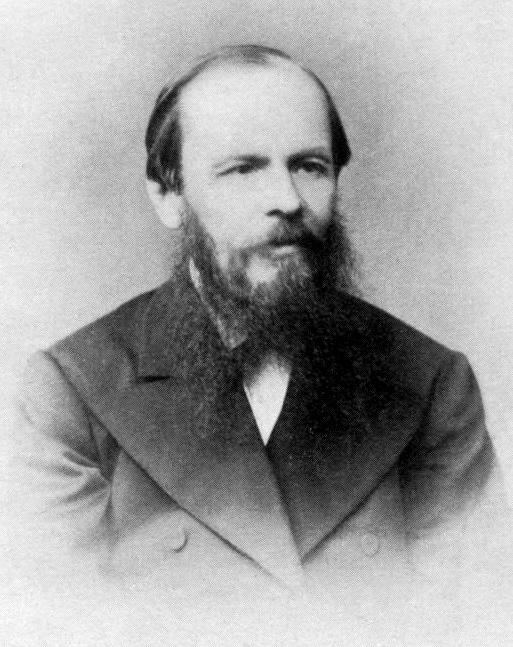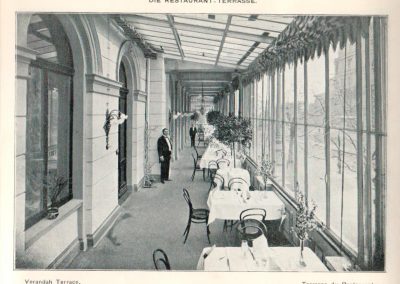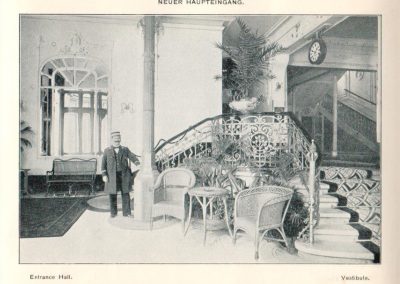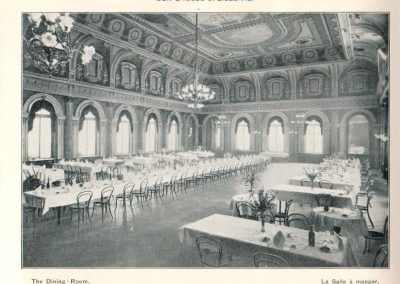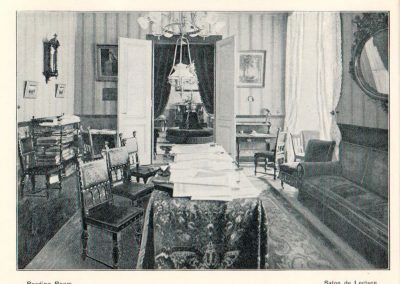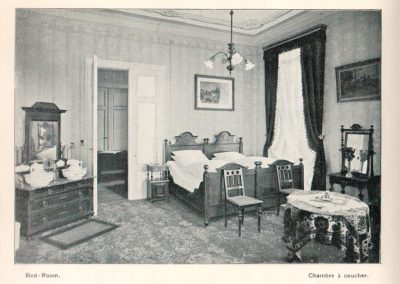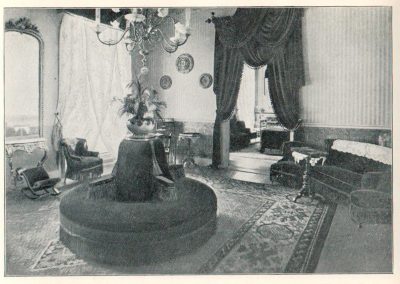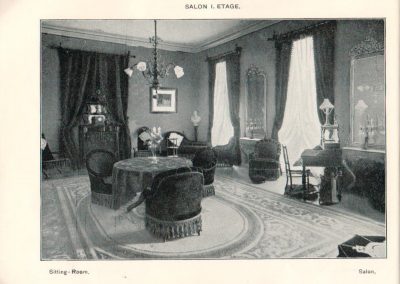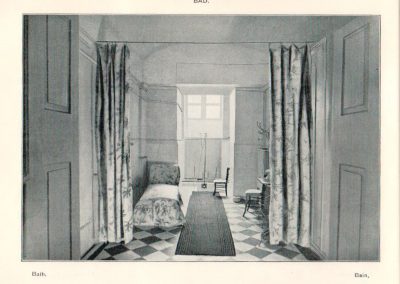The great Victoria Hotel:
Celeb-Hostel of the Imperial Age
The building in which the Praxis am Kureck is located stands on a site that plays an important role in the history of Wiesbaden:
Romping Place of the Imperial “Haute Volee”
The building in which the Praxis am Kureck 2014 opened was once home to one of Wiesbaden’s first modern spa hotels with bathing facilities: the Düringer Hotel, which opened in 1842.
At the “Düringer” the rich, beautiful and powerful of the imperial era descended to cure in Wiesbaden’s hot springs — or to be seen in the company of the rich, beautiful and powerful. Because Wiesbaden was a “must” of the 19th century. Anyone who was not in Wiesbaden when the Emperor went on holiday and attended the May Festival simply did not belong to the “Relevant Set”.
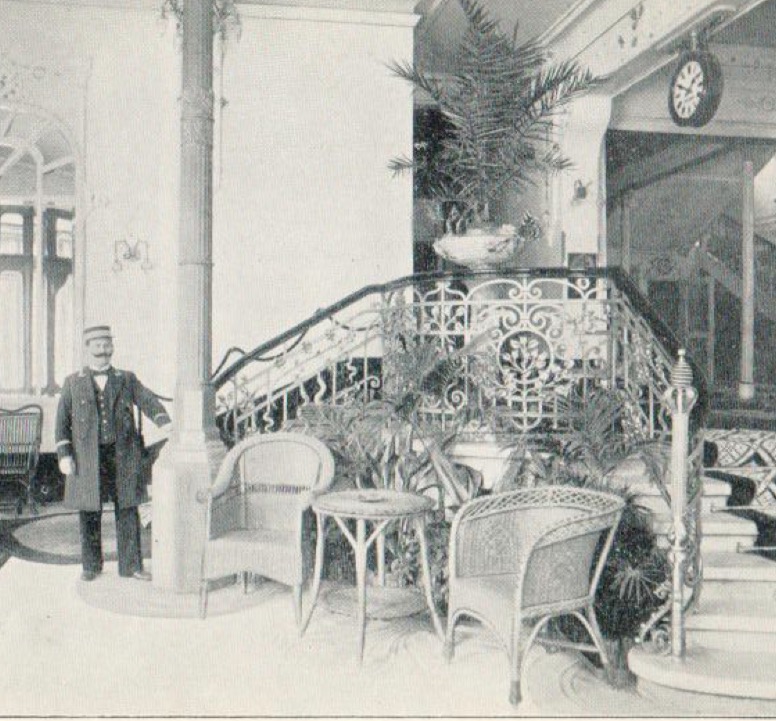
Promenades — even for women!
The hotel at the beginning of Wilhelmstrasse and Rheinstrasse was the starting point for prestigious afternoon promenades on the two newly built, large boulevards of Wiesbaden. After the Taunusbahnhof was completed in 1840 (on the site of today’s Rhein-Main Congress Center), new large hotels had settled here. Recently, people travelled by train, which came “at a speed of 40 km/h” from Frankfurt. (Passengers were advised not to look out the window, as the excessive speed could lead to “vertigo and madness”.
The spa promenades on the Rheinstraße were especially for women an opportunity to live out exceptional freedoms: On the wide, plane-tree-lined spa promenades with benches, they were allowed to walk more slowly and even stop and appeal to friends without immediately being regarded as “light girls”. The daring were even allowed to be accompanied by gentlemen, even if they were not their spouses!
When Dostoyevsky was tanking at the green table
Besides many princes, politicians and writers, one of the most spectacular guests of this hotel was the Russian poet Fyodor Dostoyevsky. As a passionate gambler he often visited the casino in the Kurhaus in 1865 and gambled away 3000 gold roubles — his entire fortune. Since he had nothing left for the hotel bill, the hotelier refused him a seat in the dining room and discreetly complimented him out. There was no discussion of the case because, although not unusual, it was nevertheless embarrassing.
Back in St. Petersburg, Dostoevski urgently needed money and wrote the novel “The Player” in only 26 days, in which he impressively addressed the consequences of gambling addiction. Wiesbaden — alias “Roulettenburg” — and its illustrious figures do less well. Nevertheless, the casino still proudly presents the original roulette wheel to which Dostoyevsky fell victim at that time.
The Hotel Düringer changed hands in 1857 and was renamed “Victoria Hotel und Badehaus”. In March 1945, the Hotel Victoria and Badhaus were destroyed in a bombing raid 1945 and never rebuilt.
Our picture gallery shows the splendour and modernity of the Victoria Hotel and Bathhouse around 1895.
Hans-Werner Klein
